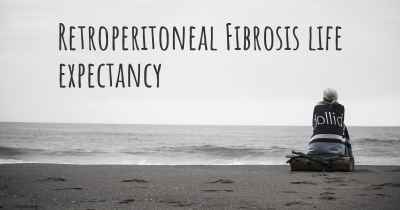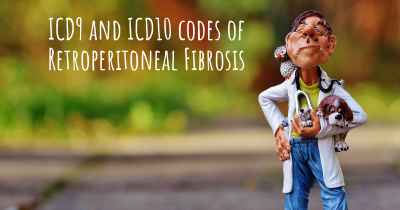Is Retroperitoneal Fibrosis hereditary?
Here you can see if Retroperitoneal Fibrosis can be hereditary. Do you have any genetic components? Does any member of your family have Retroperitoneal Fibrosis or may be more predisposed to developing the condition?

Retroperitoneal Fibrosis is not typically considered a hereditary condition. It is a rare disorder characterized by the formation of fibrous tissue in the retroperitoneal space, which can lead to the compression of nearby structures. The exact cause of this condition is unknown, but it is believed to involve an abnormal immune response. While there may be some cases with a genetic predisposition, the majority of cases are sporadic and not directly inherited.
Retroperitoneal Fibrosis (RPF) is a rare condition characterized by the formation of fibrous tissue in the retroperitoneum, the area behind the abdominal cavity. It can lead to the compression and obstruction of nearby structures, such as the ureters and major blood vessels. While the exact cause of RPF is still unknown, it is believed to be an autoimmune disorder, where the body's immune system mistakenly attacks its own tissues.
As for the hereditary nature of RPF, there is limited evidence to suggest a genetic component. Some studies have reported familial cases of RPF, indicating a potential genetic predisposition. However, the inheritance pattern and specific genes involved have not been clearly identified. This suggests that while there may be a genetic susceptibility to developing RPF, it is likely influenced by a combination of genetic and environmental factors.
It is important to note that RPF is a relatively rare condition, and most cases occur sporadically without a family history. This means that even if a family member has been diagnosed with RPF, the risk of inheriting the condition is still relatively low.
Diagnosis and treatment of RPF typically involve a combination of imaging tests, such as CT scans and MRIs, to visualize the fibrous tissue and assess its impact on surrounding structures. Biopsies may also be performed to confirm the diagnosis.
Treatment options for RPF aim to relieve symptoms, prevent complications, and halt the progression of the disease. This often involves the use of corticosteroids and other immunosuppressive medications to reduce inflammation and fibrosis. In some cases, surgical intervention may be necessary to remove or bypass the obstructed structures.
In conclusion, while there may be a genetic component to Retroperitoneal Fibrosis, the exact hereditary nature of the condition is still not fully understood. Further research is needed to identify the specific genes involved and their inheritance patterns. If you suspect you or a family member may have RPF, it is important to consult with a healthcare professional for an accurate diagnosis and appropriate management.








